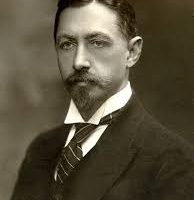
BY MULUGETA GUDETA
In game theory, zero sum game is defined as, a situation often cited in which one person’s gain is equivalent to another person’s loss, so the net change in wealth or benefit is zero. The concept of zero sum game which is derived from Game Theory seems to fit very well into the psychology and practice of Ethiopian politicians. Leaving aside the long political tradition of the country, we can look at the last fifty years of political developments in order to realize how the concept has been embraced and consciously or unconsciously practiced by leading politicians and intellectuals in this country.
In the 1970s and 1980s Ethiopian intellectual elites had fallen in love with Leftist ideology and more specifically with Marxist-Leninist thinking and tried to change their society with it. However, they did so without taking into consideration the historical, social, economic and political realities of Ethiopia. In the process they committed many serious mistakes happened, one of which was to spread extremist and uncompromising views in the community, leading to extreme polarization that quickly degenerated from violent dialogue into armed violence. That was a very tragic phase of modern Ethiopian politics.
What is still tragic is the fact that the Leftist extremism of those decades is still holding sway in Ethiopia’s political narrative making it difficult to bridge the gap in outlooks between the various strands of the intellectual elite. To make matter worse, Leftist ideology was later on combined with nationalism leading to a new form of extremism that emphasized ethnicity over class and creating a very volatile and violent political atmosphere within which the various elite groups struggled to implement their specific agendas at the cost of national unity and cohesion.
The ensuing conflict assumed ethnic characteristics and became not only more widespread but also more violent despite the fact that the 1918 political reforms tried to overcome the old paradigms and create a new political reality in which national unity, Ethiopia’s sovereignty and dignity were considered more important than any ethnic pretensions. One of the chief characteristics of this phase was the continuation of conflicts and violence in new forms and with increased intensity, threatening the reforms that were initiated following the popular protest actions of the previous years.
Without going into the complexities of Ethiopian politics, we can safely assume that the absence of compromise, dialogue or face to face consultation, open debate has shaped not only modern politics in this country but has also shaped the attitudes of generations of intellectuals who chose to imprison themselves in a kind of mental fortress from which they traded political platitudes that led to the tragedies of the 1970s and the following decades down to these days.
As we write these lines, Ethiopian politicians, in a move that can be considered a miracle, have agreed to let the past burry its dead and welcome a new dawn of peace, tolerance, accommodation by coming out of the mental prison “zero sum game” had confined them in the past. This process, if successful is bound to change Ethiopia’s political culture from one of violent confrontations to that of peaceful compromise.
The trouble is that political culture does not change overnight or within a very short period of time. As the old culture of intransigence and violence was built over many decades if not centuries, the new culture of compromise, dialogue and unity of purpose will take many decades to take root in the minds of the political elites as well as in society and become the operational paradigms of the new political reality. Meanwhile, there will certainly be many challenges, advances and retreats in the process. The point is to be perseverant, honest and committed to changing the political culture of the country from negativism into positivism.
The recent agreement between the Ethiopian government and the TPLF can be regarded as a testing moment in order for politicians to prove their honesty to the spirit and essence of the agreement. On the part of the TPLF, a major change or overhaul of its ideology is a must. Leftist ideology now seems dead not only in Ethiopia but also in the world.
Russia, is we know it historically was the bastion of Marxist-Leninist revolution until the fall of the Berlin Wall in 1989. Since then Russia has undergone major shifts in ideology and political strategy leading to the emergence of new national entities independent from Moscow. This has nevertheless led to new conflicts and new demands instead of creating an environment conducive to peaceful coexistence.
The old ideology is still responsible for the new conflicts. Stalin’s infamous “national question” has caused many political damages and caused many unnecessary sufferings on millions of innocent people both in Europe and in Ethiopia. While it is good for nations to assume independent and peaceful existence in accordance with the wishes of the peoples, it is however unacceptable for the new national entities to go into war with their old nemesis. The world was not prepared to deal with the post-communist world and no solutions were at hand to resolve national conflicts.
Thus the alternative was for internal and external political actors to try to deal with the changing realities by putting their national interests at the centre of the conflicts without finding common grounds. This is what is happening in Europe and in Ethiopia where external intervention has added fuel to the fire without seeking balanced, all-inclusive and pragmatic solutions to the conflicts. What NATO is doing in the context of the Russian-Ukraine conflict and what the West has been doing in the context of the Ethiopian government versus the TPLF, share more similarities than differences.
External interventions tend to aggravate the differences rather than closing the gaps. Almost all peace initiatives engineered by external actors in Africa have failed because of this. The recent peace agreement between the Ethiopian government and the TPLF was made possible simply because external actors were sidelined and Africans have assumed total control of the peace process. Anti-African forces may not be happy with this development and may even withhold some of their traditional weapons of coercion such as external aid, to coax the Africans into accepting their presence in African affairs with a view to protecting their strategic interests. The truth is however that Africans value their peace and unity more than external aid which is more a weapon of coercion than economic freedom for Africa. The South African and Nairobi peace process has proved Africans’ wisdom and superior and honest bargaining dispositions.
This peace process, if ultimately successful will definitely give a huge impetus and a paradigm shift in solving African conflicts from the traditional Western modus operandi to that of African self-reliance in searching for solution to African conflicts. The South African and Nairobi peace processes have demonstrated that Africans can mediate, talk to one another or achieve peace without outside meddling. This is in itself a radical change in conflict resolution approaches that were so far tried and largely failed because they were engineered, implemented and inspired by external forces.
Now that the ice is broken and a period of political thaw is just setting in, the political elites both from the Ethiopian government and the TPLF sides look determined to shed their old ideological skins in favor of pragmatism, realism and common interests or putting the national interest above their personal or group interests. This in itself is highly encouraging and a giant step towards an era of peace, mutual understanding and lasting peace.
As wars are first made in the hearts and minds of the political actors, it is in the minds of these same people that the roots of a new thinking should be planted. If the elite change, society will change because the root causes of the conflicts are the so-called intellectual elite and not the common people who tend to follow their leaders because they are not yet empowered enough to follow their own instincts and common sense.
Whether one likes it or not, political and business elites hold the keys to peace, dialogue and reconciliation in Africa. African political elites are still in the driving seat as far as conducting African political or diplomatic business. The moment these elites change their minds from a narrow, selfish, and violent perspective to one of broader, selfless and peaceful one, everything would fall in place and a genuine peace process can sprout on African soil. Maybe this is the first time an African problem is being dealt with by Africans themselves. This is a radical break from the past and an attitude that needs to be maintained in the future too. Why should Africans look to New York, Washington, Paris or Brussels when they have the capacity to address their problems with the immortal spirit of Africa.
The Ethiopian Herald November 19/2022



